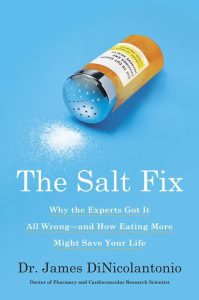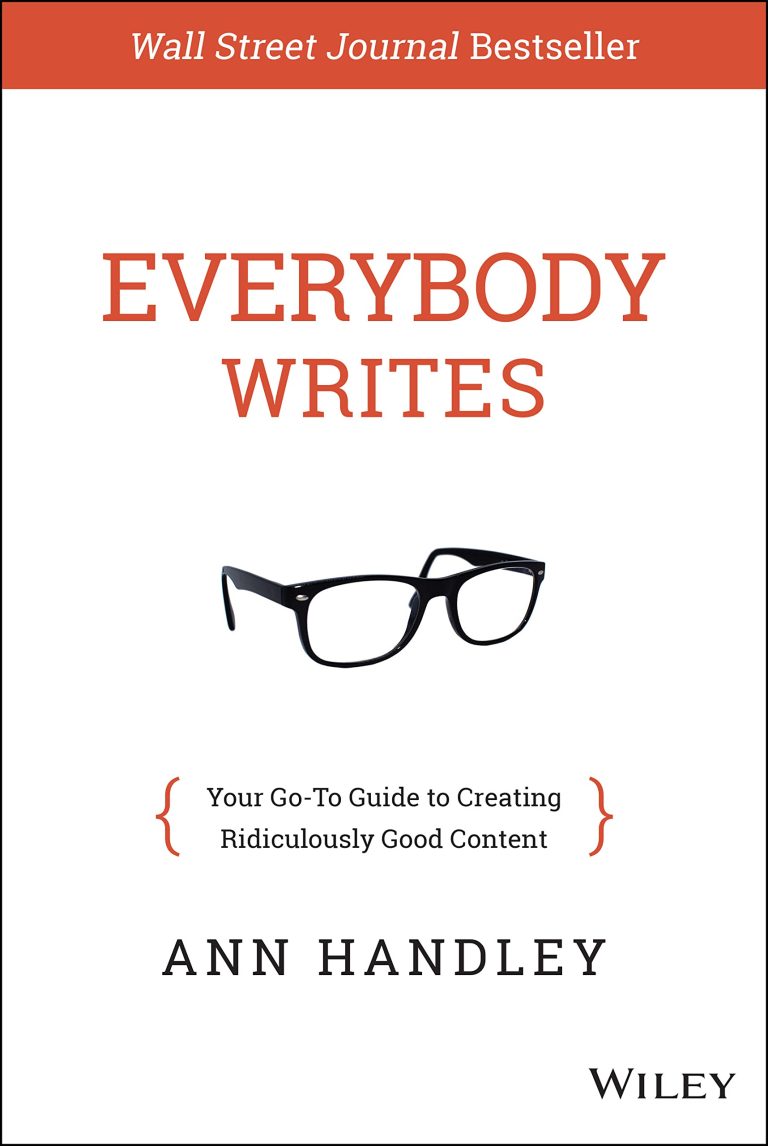“The Salt Fix” by Dr. James DiNicolantonio – Book Review

“The Salt Fix” by Dr. James DiNicolantonio is a book that challenges the conventional wisdom that salt is bad for our health and argues that, in fact, a moderate intake of salt is necessary for our bodies to function properly.
Check it out on Amazon, or my personal favorite, Bookshop.org.
Table of contents
3 Main Takeaways from “The Salt Fix”
- Salt is essential for maintaining good health: The book argues that salt plays a crucial role in regulating blood pressure and fluid balance, and that low-salt diets can lead to a host of health problems, including heart disease and diabetes.
- The dangers of low-salt diets have been exaggerated: Dr. DiNicolantonio presents evidence that the dangers of high salt intake have been overstated and that the risks of low-salt diets are often overlooked.
- Not all salt is created equal: The book advises on how to properly incorporate salt into our diets and how to choose the right types of salt, it emphasizes the importance of choosing natural salts over processed salts.
General Overview
“The Salt Fix” by Dr. James DiNicolantonio is a book that challenges the conventional wisdom that salt is bad for our health and argues that, in fact, a moderate intake of salt is necessary for our bodies to function properly.
Dr. DiNicolantonio presents a well-researched and comprehensive argument for the benefits of salt, drawing on a wide range of scientific studies and historical examples. He explains how salt plays a crucial role in regulating blood pressure and fluid balance, and how low-salt diets can lead to a host of health problems, including heart disease and diabetes.
The book challenges the conventional wisdom that salt is bad for our health and argues that our attitude towards salt is based on flawed science and the influence of the sugar industry. The author presents evidence that the dangers of high salt intake have been overstated and that the risks of low-salt diets are often overlooked. He also highlights the role of the sugar industry in promoting low-salt diets as a way to increase sugar consumption and profits. The book aims to educate the readers about the importance of moderate salt intake for our health and to provide them with a more balanced perspective on the role of salt in our diets.
The author argues that too little salt can make you crave sugar and refined carbohydrates because of the way it affects the hormones that regulate hunger and appetite. According to the book, low-salt diets can disrupt the balance of hormones such as aldosterone and renin, which play a role in regulating blood pressure and fluid balance. When the levels of these hormones are disrupted, it can lead to an increase in appetite and cravings for sugar and refined carbohydrates. This is because the body is looking for ways to increase the amount of salt it needs to function properly. Additionally, when our bodies don’t get enough salt, it can also disrupt the appetite-regulating hormones such as ghrelin and leptin, which can also lead to cravings for sugary and high-carb foods.
One of the strengths of the book is the author’s ability to clearly explain complex scientific concepts in a way that is accessible to a general audience. He also provides practical advice on how to properly incorporate salt into our diets and how to choose the right types of salt.
Who Should Read “The Salt Fix”?
“The Salt Fix” by Dr. James DiNicolantonio is a book that offers an alternative perspective on the conventional wisdom about salt and its effects on health. It is a thought-provoking and informative read that provides valuable insights into the importance of this essential mineral. The book is targeted primarily to:
- People who are interested in health and nutrition and want to gain a deeper understanding of the role of salt in our health and well-being.
- People who are looking for an alternative perspective on the conventional wisdom about salt and its effects on health.
- People who are concerned about the potential health risks of low-salt diets and want to learn more about the benefits of moderate salt intake.
- People who are looking for practical advice on how to properly incorporate salt into their diets and choose the right types of salt.
- People who are interested in understanding the scientific evidence behind various health claims and want to separate facts from myths.
It could be beneficial for anyone who wants to gain a better understanding of the importance of salt in their diet and its effects on health, and for those who are looking for an alternative perspective on the conventional wisdom about salt.
My Top 3 Quotes from “The Salt Fix”
- “And unlike cravings for salt, which are controlled by our bodies’ physiological innate need for it, sugar cravings are produced by either psychological desire or physiological dependence on it. Regardless of how powerful these cravings are, they’re not signs that your body actually needs sugar!”
- When fructose is tripped out of naturally high-carbohydrate foods (sugar beet, sugarcane, or corn), then boiled down to concentrated form and added to other foods, it becomes more addictive and harmful than in its original state. If it seems crazy to think of a plant product becoming an addictive drug, think of cocaine from coca leaves or heroin from poppy seeds/pods—in essence, these are all concentrated addictive substances from plants.”
- “Low salt intake during pregnancy and lactation leads to increased fat mass, insulin resistance, and raised levels of “bad” cholesterol and triglycerides in the offspring, which may carry over into adulthood. More worrisome is that a low salt diet in pregnancy has also been found to cause hypertension and kidney disease in adult offspring. All of this suggests that low salt intake during pregnancy may program our children to develop abnormal lipids, diabetes, obesity, hypertension, and chronic kidney disease- the diseases we believe a low-salt diet will prevent!“
Final Thoughts
“The Salt Fix” by Dr. James DiNicolantonio is a thought-provoking and informative book that offers an alternative perspective on the conventional wisdom about salt and its effects on health. The author presents a compelling argument that the dangers of high salt intake have been overstated and that the risks of low-salt diets are often overlooked. He also highlights the role of the sugar industry in promoting low-salt diets and the negative impact this can have on our health.
The book is well-researched and provides a wealth of information on the importance of moderate salt intake for our health, and on the various types of salts and their health benefits. It also provides practical advice on how to properly incorporate salt into our diets and how to choose the right types of salt.
Overall, “The Salt Fix” is an important read for anyone who is interested in health and nutrition, and who wants to gain a deeper understanding of the role of salt in our health and well-being. It challenges the conventional wisdom about salt and provides a more balanced perspective on this essential mineral. While the book presents evidence that supports the author’s arguments, it is important to note that this is one point of view and it is always recommended to consult with a healthcare professional or nutritionist before changing any dietary habits, just remember that these people may be biased as well.
Always keep your eyes and ears open to your being fed.
Interested in more book reviews or seeing what I’m currently reading or planning to read in the future? Check out my page on Books!
You can find “The Salt Fix” on Amazon, or my personal favorite, Bookshop.org!





